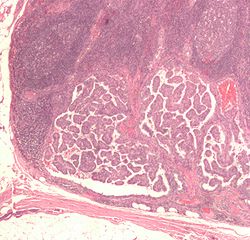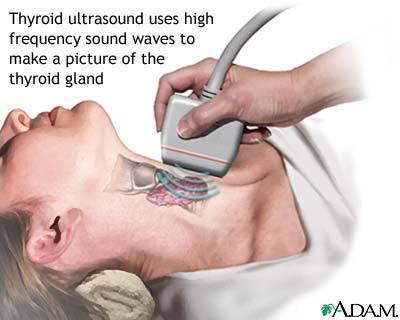There were studies suggesting that diabetes increases a person’s lifetime risk of developing thyroid cancer, and a new report published shows this linkage for retirement-age Americans.
The medical scientists found that if a person between 50 and 71 years old has diabetes the 10-year risk of thyroid cancer is increased by one-quarter.
The researchers founded their conclusions on data collected from the around 500,000 men and women who participated in the NIH-American Association of Retired Persons (AARP) Diet and Health Study, that was performed in 1995 and 1996.
In the first survey, the statisticians gathered health information using questionnaires. Volunteers were asked about their pancreatic health, body mass index, diabetic status and other physical health related issues.
Ten years later, scientists conducted follow-up diagnostic tests on lots of participants.The new study used the values found during these visits.
On the first questionnaire, about one in 10 subjects reported having diabetes. Years later, these persons developed thyroid cancer with higher average frequency than those without the diabetes.

Overall, the participants with diabetes were 25 percent more likely than their peers to be diagnosed with thyroid cancer and the risk was found higher in women.
The men with diabetes had only 4 percent increment in the likelihood of developing thyroid tumors, but in diabetic women their risk climb by 46 percent.
The study appeared in the journal Thyroid, and was conducted by epidemiologists associated with the National Cancer Institute (NCI) and the National Institutes of Health (NIH).
These data confirm the results that were published over 10 years ago in the journal Clinical Diabetes. In an article appeared in 2000, Patricia Wu, an endocrinologist from the University of California, San Diego, gave an estimated 6.6 percent of the U.S. population with various type of thyroid disease and she said 10.8 percent of diabetics suffer from thyroid illnesses.
There are no doubtless information regarding the association between diabetes and the development of thyroid cancer.
However, researchers advanced the theory that the linkage is given by the conditions’ similarities as endocrine disorders. Thyroid Today emphasizes thyroid cancer and diabetes are in connection to autoimmune disturbances, body mass index variation and age-related risk.
Lots of adults have small nodules in their thyroids, but under 5% of these nodules are malignant. Yet the most frequent first sign of thyroid cancer is a nodule, or sometimes an enlarged lymph node. An ultrasound confirms the presence of the nodules. Thyroid nodules found under age of 20 are alarming because the potential for malignancy is far greater. Later symptoms are pain in the anterior region of the neck and changes in voice.

National Cancer Institute estimates 48,020 new cases and 1,740 deaths from thyroid cancer in the U. S. in 2011.
Anaplastic thyroid cancer is a very aggressive primary thyroid malignancy, represents less than 2% of all thyroid cancers, but causes up to 40% of deaths. Median life expectancy is about three months for newly diagnosed patients. The overall 5-year survival rate of anaplastic thyroid cancer has been given as 7% or 14%.
Hoping to slow or stop the thyroid cancer progression Fosbretabulin (Zybrestat), bortezomib (Velcade) and TNF-Related Apoptosis Induced Ligand (TRAIL), are being trialed.
